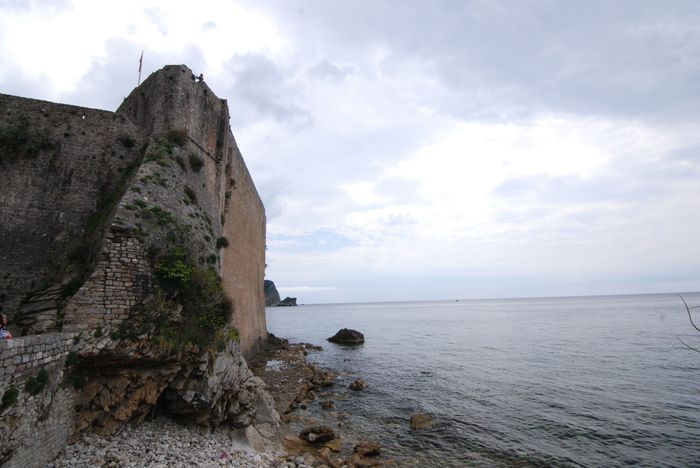The valuable products of Central Asia which found their way into the ports of the Azof and the Enxine, and which had been reserved jealously by the citizens of Constantinople for themselves, even at the time when the emperors were granting capitulations for trade in every other part of the empire, all these now went to Venice. Most of this trade was carried on by sea; but the dangers which beset maritime commerce now that the shadow of Pax Jiomana had passed away caused a considerable portion of the valuable and less bulky products of India and Central Asia to be taken up the Indus, thence by camels to the Caspian, and then partly overland and partly by rivers to Venice or other European states. The great bulk of the trade between Asia and Europe was diverted from the Bosphorus into the Adriatic. Venetian ships for a time replaced in the Black Sea, not only those of Constantinople, but even those of Genoa. The Tartar races in the Euxine, as well as the Saracens in Egypt and Syria, traded almost exclusively with the citizens of Venice.
Innocent continued to condemn the conduct of the Crusaders Evil results of an the Venetians in terms which show that they the conquest. are deliberately formed opinion and that of the great churchmen by whom he was surrounded. We have seen that at times his language is that of profound indignation at the iniquities which have been committed; at other times it is that of expostulation and of calm reasoning. But throughout the many letters in which he addresses the actors in this huge fiasco or alludes to their conduct, the sentiment most predominant is one of sadness that the Crusaders should have abandoned the object for which they were brought together. His letters leave the impression that he never ceased to regret the failure of the crusade, which had been so carefully organized and from which so much might reasonably have been expected.
Interests of Europe and civilization
He appears on many occasions to feel that it is impossible to make those whom he addresses understand what is the greatness of the opportunity which they had missed. In the comprehension of the Eastern question of his day and of what statesmanship required for the interests of Europe and civilization, he seems to stand at the opening of the thirteenth century head and shoulders above all other kings and potentates. The tone of his letters, their gloom, when speaking of the prospects of Romania, of Asia Minor, and of Syria, almost appear as if he alone in his generation foresaw how disastrous the conquest of the imperial city would be; as if he alone recognized that it was the interest of Europe to make a supreme effort to strike a blow at Mahometanism, which should make its further advance upon Christian territory impossible. He tried and, no doubt, to a certain extent succeeded in finding consolation in the union of the churches, which he fondly hoped was to be brought about by the conquest; and though, as we have seen, he recognized that the manner of the conquest had placed a great obstacle in the way of union, he yet hoped that the “loathing” felt by the Greeks towards the Latins would in time be softened down or entirely removed.
